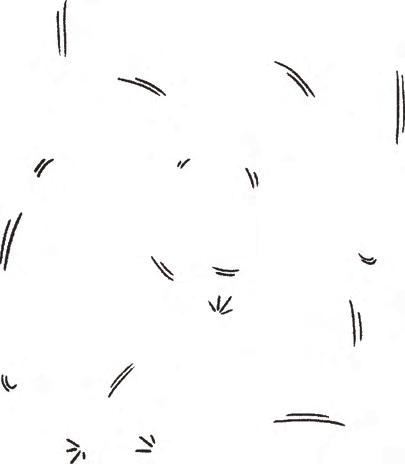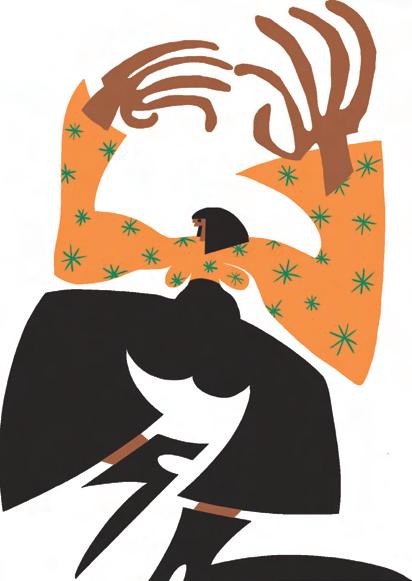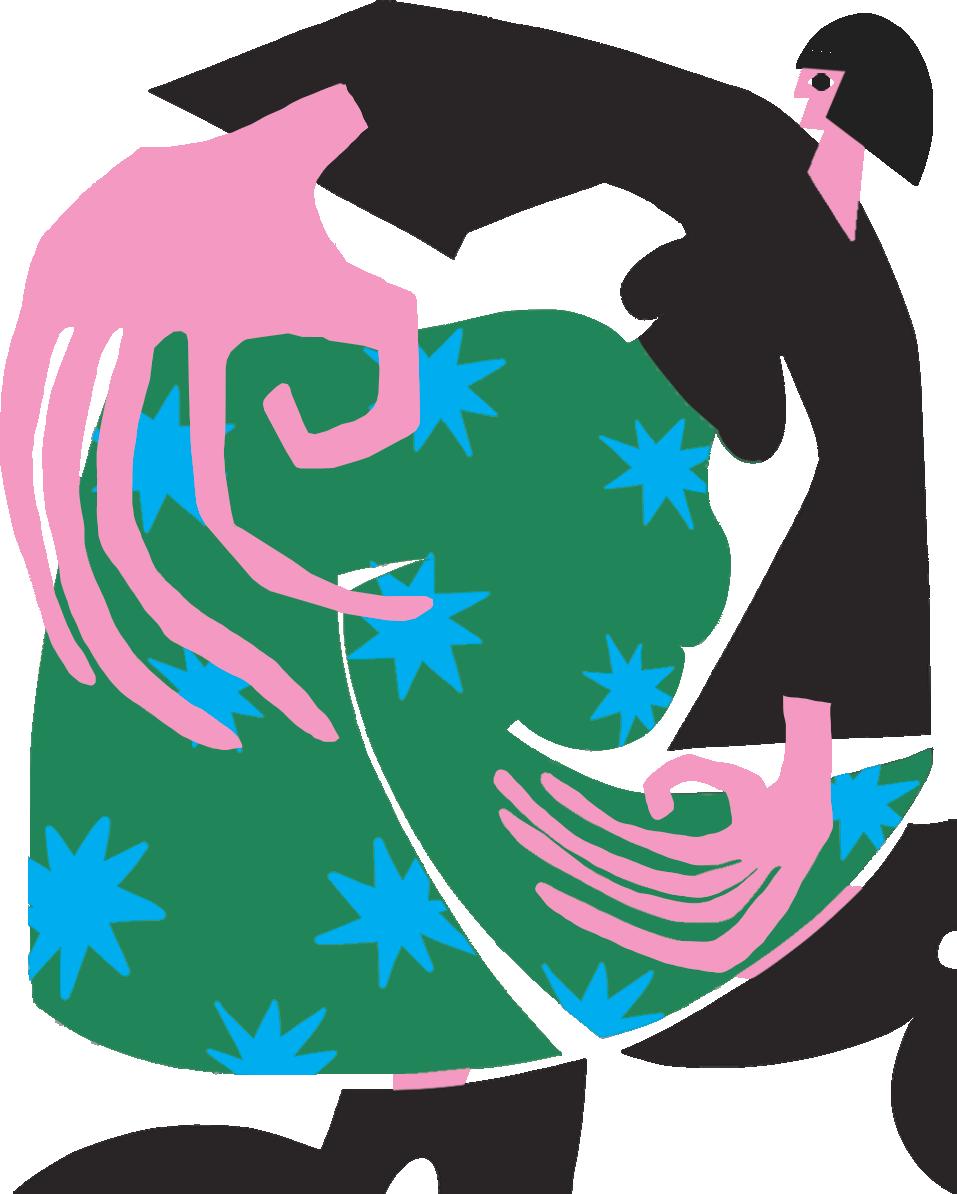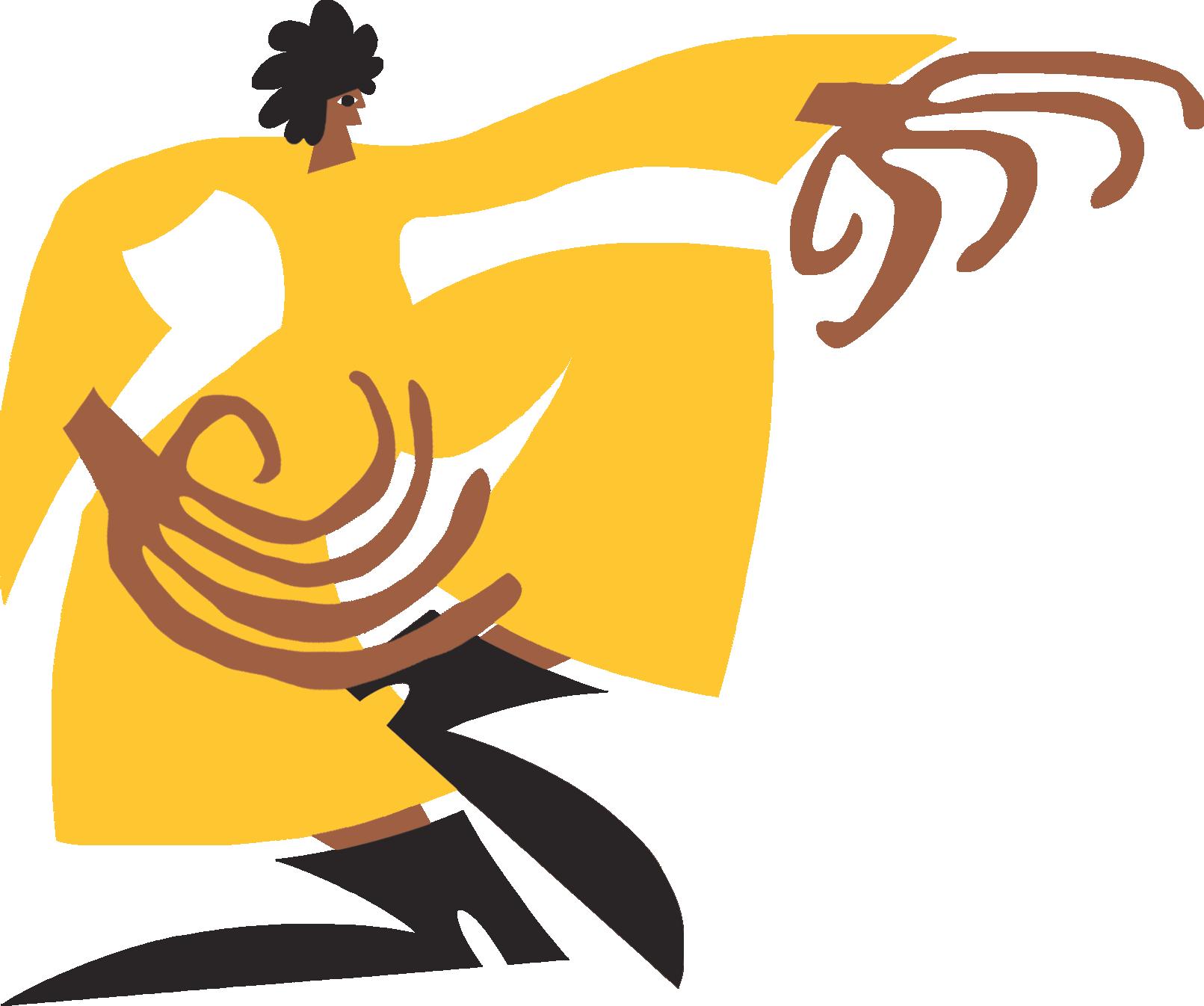
7 minute read
We meet some of those work ing to properly and authenti- cally implement safer space policy in the club scene.
Redesign the Night
At the end of a year that has once again revealed the dangers faced by women and people from marginalised genders at night, we meet some of those working to properly and authentically implement safer space policy in the club scene
Advertisement
Interview: Nadia Younes Illustrations: Sophie J Morrison
Phoning a friend, sticking to main roads, not wearing headphones... We are all aware, by now, of the standard safety protocols taken when women and people from marginalised genders walk alone at night. The events of the last year – from the high profile murders of Sarah Everard in March and Sabina Nessa in September, to recent reports of needle spiking in UK nightclubs – have brought to light huge concerns over the safety of women and people from marginalised genders at night. A recent YouGov survey – commissioned by Police Crime Prevention Initiatives – found that more than 80% of women want improved safety in bars and nightclubs, and the recent rise in concern over spiking has prompted many nightlife venues across the UK to release statements outlining new security measures. Another response to the reports of spikings was a nightclub boycott, which took place on 28 October, organised by a group of Edinburgh students under the campaign name Girls Night In. Launching on the same night as the boycott was a brand-new club night, Club Sylkie, at Sneaky Pete’s in Edinburgh. The night, run by Rowan Crerar – who DJs under the moniker Xivro – aims to create a space for queer women, trans women and non-binary people to enjoy harder styles of dance music in a club environment. Crerar has worked in the events industry, specifically in club promotion, for over five years, and has previously received Good Night Out training – a programme specifically designed for nightlife venues to “better understand, respond to, and prevent sexual harassment and assault in their spaces.” The organisation has worked with and trained 185 nightlife spaces across the UK, and helped world-renowned London nightclub fabric create the first ever nightclub anti-sexual harassment policy. Upon hearing news of the boycott taking place on the night of Club Sylkie’s launch, Crerar immediately attempted to get in touch with the organisers of Girls Night In, but struggled to get a response. On the day of the boycott, student publication The Tab published an article which featured a statement from Girls Night In making an exception for Club Sylkie. “It seemed, at first, that the boycott was going to happen [and] Club Sylkie would be empty, or just full of men, and we wouldn’t be able to do another one,” says Crerar. “And what’s the result of that? There’s no dedicated safer space for queer women in Edinburgh.” Crerar continues: “I think, in student culture, boycotting and community and collective action is really important. I think some of the people who came [to Club Sylkie] were students and felt quite anxious or guilty about breaking the boycott or not showing solidarity, so it was nice that Girls Night In had recognised the efforts going on.” As well as receiving Good Night Out training, Crerar has also received training from Edinburghbased organisation Crew 2000 – a harm reduction and outreach charity, which trains thousands of professionals in Scotland every year – and says that, in light of recent events, everyone at Club Sylkie will be receiving the same training in the next few months. “To some extent, the stuff that’s covered in safer space policy is tacit knowledge but it’s always helpful to have that contextualised and to learn proper protocols,” says Crerar. Ultimately, when you’re throwing a party, you want it to be fun and it’s only going to be fun if everyone feels safe. “That’s the whole point with Club Sylkie: for queer women and queer, non-binary people, and people who are largely not represented within the dance music scene to have fun.” Crerar credits collectives like Gut Level in Sheffield and London’s Sisu Crew as key inspirations for Club Sylkie; both of whom run seminars and workshops on creating safer, more inclusive spaces and events, specifically focusing on dance music and club culture. More locally, Crerar also mentions FUSE by VAJ.Power in Glasgow as a key influence. FUSE was co-founded by Sofya Staune as a club night in 2016, with the goal to create a safer space for artists and audience alike, prioritising trans and queer people, and it has since expanded into a booking agency. “The most important thing that I found while trying to run a safer space event is to always listen to people who are at different intersections of experience to me, and to identify who the spaces I run are for,” says Staune. “I want to be in and run a space that is comfortable, not just safe: comfortable for the queer community, comfortable for neurodivergent people, comfortable for trans people. I think it’s important to have a more nuanced approach to this, rather than focusing solely on being physically safe or being able to physically exist within the space, [which] is a bare minimum.” Both Crerar and Staune agree that it is important for promoters to have ongoing conversations with venue bookers, managers and staff on








how to properly and authentically implement a safer space policy at their nights and, more importantly, to trust them. “I knew from going to Miss World that Sneaky Pete’s were very communicative and they really care about community,” says Crerar. “Issues like safer space, representation and inclusion are something that Sneaky Pete’s are interested in and care about.” Staune shares a similar sentiment: “I have a lot of respect and admiration for the venue we currently are based in, Stereo,” they say. “The security there is amazing, as well as the staff, and I have a lot of trust in them to handle anything that can arise during the night, probably the most trust I’ve ever had working with a venue.” A lot of the recent conversations surrounding safety within nightclubs have centred around increased security, specifically on ramping up bag checks and entry searches. But over-policing in nightclubs is often criticised for disproportionately affecting marginalised groups. This is something Anna Cowan, co-founder of Girls Against – a non-profit organisation fighting against sexual assault at live music and nightlife events – is critical of, explaning: “Our main thing is we want an intersectional approach to educating people. “There needs to be a cultural shift to make sure that sexual violence is no longer prevalent in nightlife and live music, rather than increasing security, bag checks and all that,” Cowan continues. “Our biggest belief is changing this through sex education from a young age. I know that the Scottish Government has just introduced legislation all about improving sex education in schools, specifically directed at boys, to change their attitudes of how they view women and girls, which is such a good starting point because it really does start then.” The recent outrage surrounding needle spiking has, justifiably, created a sense of panic and fear among many people visiting nightclubs in the UK. But while the risk of spiking remains concerning – with nearly 200 confirmed reports of drink spiking reported across the UK in August and September alone – in November, Vice World News reported that there have been no confirmed official cases from 274 reports of needle spiking in the UK. Many nightlife venues have since taken measures to improve security and have increased staff training, but, as Cowan suggests, the onus shouldn’t solely be on venues, but rather on our wider culture. The greatest joy of clubbing is, ultimately, the sense of freedom that comes with it, but it is impossible to feel free without feeling safe. There are numerous organisations providing promoters and venues, within and outwith Scotland, with the skills they need to spot potential incidents of harm within their spaces. And parties like Club Sylkie and FUSE by VAJ.Power show that it is very possible to create a safe and comfortable club environment, striking that all important balance and providing spaces where dancers can feel both free and safe. Here to Help
Scottish Trans Alliance The Equality Network project working to improve gender identity and gender reassignment equality, rights and inclusion in Scotland. The organisation provides specific security training on trans equality, rights and inclusion good practice.
Street Assist Edinburgh A self-funded and volunteer-led organisation, made up of welfare officers and first aiders, providing cover on Friday and Saturday nights, as well as offering a bespoke service for events.
Strut Safe An Edinburgh-based, volunteer-led organisation, founded by students Alice Jackson and Rachel Chung, which allows individuals to call or text a number to request an escort home, or chat with someone while you walk home.
Sexpression An independent UK charity, who provide near-peer informal and comprehensive Relationships, Sex and Health Education (RSHE) teaching training to university students.









